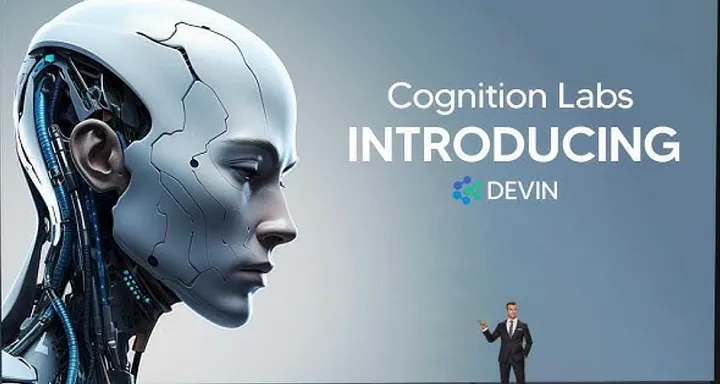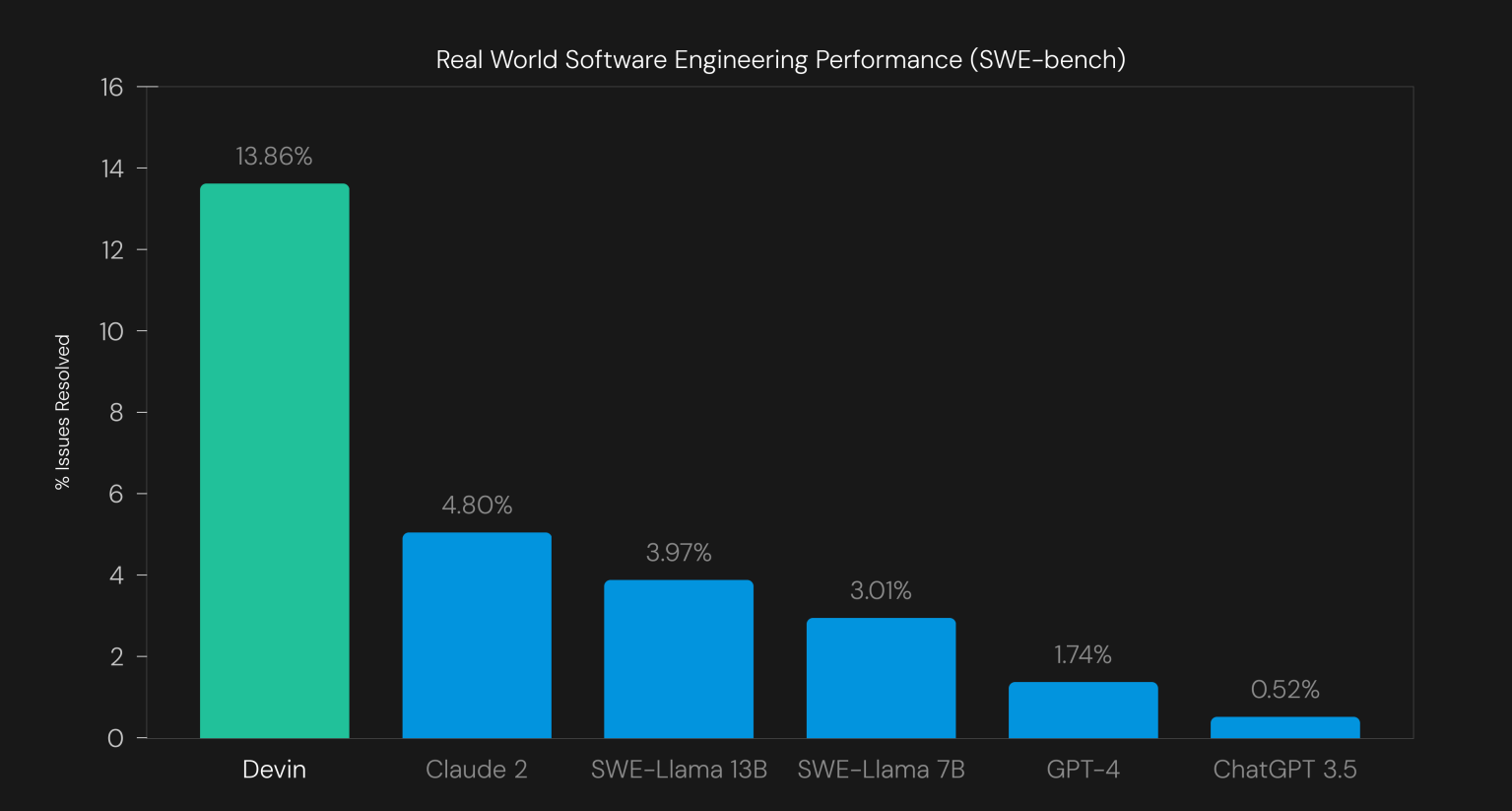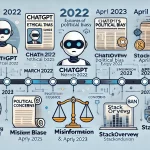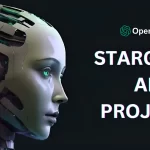
Devin: The World’s First Autonomous AI Software Engineer
March 26, 2024World’s first autonomous AI software engineer
Cognition, a cutting-edge AI startup, has unveiled Devin, the world’s first autonomous AI software engineer. Devin is designed to handle entire development projects from start to finish, including writing code, creating websites, fixing bugs, and executing final tasks with just a single prompt. This groundbreaking technology is set to revolutionize the field of software development by offering a new paradigm in AI-assisted development.
Access DEVIN AI here: https://devinai.ai/
Unlike existing coding assistants like Github Copilot, which mainly focus on generating code snippets, Devin is capable of planning and executing complex engineering tasks independently. It can access developer tools, including a code editor and browser, within a sandboxed compute environment to make thousands of decisions, learn from its mistakes, and continuously improve over time.
Devin has already demonstrated its capabilities by successfully passing engineering interviews from leading AI companies and completing real jobs on platforms like Upwork. Its performance on the SWE-bench coding benchmark has outperformed previous AI models by a wide margin, making it a game-changer in the world of software engineering.
While Devin is not intended to replace human engineers, it is designed to work alongside them, providing real-time updates, accepting feedback, and collaborating on design choices. By automating routine tasks, Devin empowers engineers to focus on more complex problems, paving the way for a new era of innovation in software development.
Cognition’s announcement of Devin marks a significant shift in the AI-assisted development space, offering engineers a full-fledged AI worker for their projects. As of now, access to Devin is limited to select customers, with broader access expected to open up in the future. With Devin, Cognition is ushering in a new era of AI-powered software engineering, where human intelligence and AI capabilities work together to drive innovation and efficiency in software development.
The Core Technology Behind Devin
While Cognition has not disclosed the exact details of the core technology behind Devin, the company’s founder and CEO, Scott Wu, has provided some insights into its capabilities. Devin is built to handle a wide range of development tasks, from deploying and improving apps and websites to finding and fixing bugs in codebases. It can also tackle more complex tasks, such as setting up fine-tuning for large language models and learning how to use unfamiliar technologies.
One of Devin’s key features is its ability to plan and execute complex engineering tasks requiring thousands of decisions. The AI software engineer operates within a sandboxed compute environment, where it can access common developer tools, including its own shell, code editor, and browser. This allows Devin to develop detailed, step-by-step plans to tackle problems and execute projects just like a human engineer would, writing its own code, fixing issues, testing, and reporting on its progress in real-time.
Devin’s performance on the SWE-bench coding benchmark, where it outperformed previous AI models by a significant margin, is a testament to its advanced capabilities. It was able to correctly resolve 13.86% of the test cases end-to-end without any assistance from humans, compared to just 4.80% for Claude 2, 3.97% for SWE-Llama-13b, and 1.74% for GPT-4. This performance demonstrates Devin’s ability to handle complex engineering tasks autonomously, making it a valuable asset for engineering teams.

Future Outlook
As Devin continues to evolve, Cognition aims to expand its capabilities and offer broader access to interested parties. The company’s focus on long-term reasoning and planning sets Devin apart from other AI models in the software development space, making it a powerful tool for engineers looking to augment their work. Cognition’s vision goes beyond coding, with plans to launch similar AI agents/workers for other disciplines in the future. With $21 million in funding and backing from industry leaders like Peter Thiel’s Founders Fund, Cognition is well-positioned to lead the way in AI-powered software development.
Devin represents a major leap forward in AI technology, offering engineers a powerful tool to enhance their productivity and efficiency. By combining human intelligence with AI capabilities, Cognition is paving the way for a new era of innovation in software development. Cognition’s CEO, Scott Wu, emphasized that Devin is not just limited to coding assistance but can handle a wide range of development tasks. From deploying and improving apps/websites end-to-end to finding and fixing bugs in codebases, Devin is capable of tackling complex engineering projects with ease. One of Devin’s key features is its ability to plan and execute tasks requiring long-term reasoning and planning. This sets it apart from other AI assistants in the market, which often focus on short-term tasks or specific coding challenges. By leveraging advanced AI techniques, Devin can provide comprehensive solutions to complex problems, making it a valuable asset for engineering teams.
While Cognition has not disclosed the core technology behind Devin, it has hinted at its advances in long-term reasoning and planning. This suggests that Devin’s capabilities are the result of cutting-edge AI research and development, setting a new standard for AI-powered software engineering. As Devin continues to evolve and improve, it is expected to play a significant role in shaping the future of software development. By combining the creativity and ingenuity of human engineers with the efficiency and precision of AI, Devin is poised to drive innovation and accelerate the pace of software development like never before. Cognition’s decision to introduce Devin as an autonomous AI software engineer reflects a growing trend in the tech industry towards leveraging AI for more than just basic coding assistance. While tools like Github Copilot have been successful in helping developers write code faster, Devin represents a leap forward by offering a comprehensive solution for handling entire development projects.
The success of Devin in passing engineering interviews and completing real jobs on platforms like Upwork demonstrates its ability to perform at a high level in real-world scenarios. This gives credence to Cognition’s claim that Devin is not just a theoretical concept but a practical tool that can deliver tangible results for engineering teams. Looking ahead, Cognition’s roadmap for Devin includes expanding its capabilities to handle a wider range of development tasks and projects. By continuing to push the boundaries of AI technology, Cognition aims to position Devin as the go-to solution for AI-powered software engineering. Devin represents a significant milestone in the field of AI-assisted development. Its ability to handle complex engineering tasks autonomously sets it apart from other AI assistants and positions it as a key player in the future of software development. As Devin continues to evolve and improve, it is likely to become an indispensable tool for engineering teams looking to innovate and accelerate their development processes.
Cognition’s long-term vision for Devin includes expanding its capabilities beyond software engineering. While Devin currently focuses on coding and development tasks, Cognition aims to leverage its advanced AI capabilities to create similar AI agents for other disciplines. This could potentially revolutionize how various industries approach tasks that require complex reasoning and planning. As Devin continues to evolve and improve, Cognition is committed to ensuring that it remains aligned with the needs of its users. This includes incorporating feedback from engineers and developers to enhance Devin’s capabilities and usability. By prioritizing user input, Cognition aims to make Devin a valuable and indispensable tool for the software development community. Overall, Devin represents a significant advancement in AI technology and its application in software engineering. By combining the creativity and problem-solving skills of human engineers with the efficiency and precision of AI, Devin has the potential to transform how software is developed, leading to faster, more innovative, and more efficient processes.
Cognition’s development of Devin underscores the increasing integration of AI into various aspects of technology and industry. As AI continues to advance, we can expect to see more sophisticated and autonomous AI systems like Devin emerge, transforming the way we work and interact with technology. The introduction of Devin also raises important questions about the future of work and the role of AI in the workforce. While Devin is designed to assist human engineers rather than replace them, its capabilities highlight the potential for AI to automate and streamline many aspects of software development. This could have far-reaching implications for the future job market and the skills required in the tech industry. Overall, the introduction of Devin by Cognition represents a significant milestone in the field of AI and software engineering. As AI technology continues to advance, we can expect to see more innovative applications that redefine how we approach complex tasks and drive new levels of productivity and efficiency.
Furthermore, Devin’s introduction underscores the importance of responsible AI development and deployment. As AI systems become more autonomous and capable, it is crucial to ensure that they are used ethically and in a way that benefits society as a whole. This includes considering the potential impact of AI on job displacement and ensuring that AI systems are transparent and accountable in their decision-making processes. Cognition’s approach to introducing Devin in a controlled manner, with limited access to select users, reflects a thoughtful and responsible approach to AI development. By prioritizing user feedback and incorporating ethical considerations into its development process, Cognition is setting a positive example for the AI industry as a whole. The emergence of Devin also highlights the ongoing evolution of AI from a tool that assists human operators to one that can autonomously perform complex tasks. This shift has the potential to reshape industries beyond software engineering, including healthcare, finance, and manufacturing, where AI can be used to optimize processes, improve decision-making, and drive innovation. As Devin and similar AI systems continue to evolve, it will be important for society to consider the broader implications of this technology. This includes ensuring that AI is used in a way that is fair and equitable, that protects privacy and security, and that promotes the well-being of individuals and communities.



















